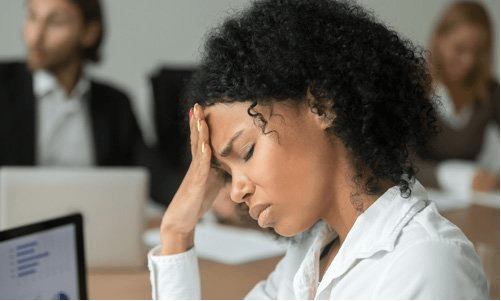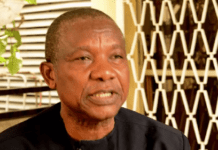
President, Association of Psychiatrists in Nigeria, Prof. James Obindo, has said that Nigerians are prone to mental illnesses, due to the visible hardships in the country.
Obindo said this in an interview with newsmen on Sunday in Abuja.
The APN president spoke while giving an insight on the country’s constitutional amendment, particularly as it affects punitive measures for attempted suicide, Correctional Service Bill, and advocacy for the passage of the Mental Health and substance Bill in the country.
The News Agency of Nigeria reports that mental health management became more critical globally within the last two years, largely due to the Coronavirus pandemic, which impacted negatively on the world’s socio-economic and governance order.
But in Nigeria, the pandemic made it more complicated, owing to what many experts described as consistent neglect of the mental healthcare sub-sector by successive administrations in the country.
For instance, even before the outbreak of the pandemic, statistics from the World Health Organisation had indicated that one in every four Nigerians, an average of 50 million people, were suffering from mental illness.
Obindo stressed that about 60 per cent of Nigerians had been documented to have a significant mental illness.
According to him, the development is made worse, as there are fewer mental health workers such as psychiatrists, psychiatric nurses, psychologists and others, in the country, to treat and manage patients.
The president noted that more than half of the number of mental health workers had been attracted to foreign countries.
“We don’t have enough mental health workers in the country and even the few that we have are all being attracted out of the country.
“We have less than 300 psychiatrists. The prescribed number is such that we should have nothing less than 1 to about 10,000 individuals.
“But what we have is 0.4 to about 10,000 individuals, four psychiatrists to 1 million Nigerians. The psychiatrist, psychiatric nurse, psychologist, social worker, as well as occupational therapist, work as a team. Psychiatric hospitals are also few,” he lamented.
Obindo noted that in addition to the current scarcity of fuel across the country, economic hardship, coupled with the level of insecurity, may likely inflict mental illness on more Nigerians.
“In the last few years, Nigerians have had to deal with issues like kidnapping, attacks and socio-economic downturns among others, and the recent fuel scarcity, forcing an individual to stay on queue for more than three hours to buy fuel even at exorbitant prices, is a major stressor for Nigerians, as stress is a major predisposing factor to mental illness.
“If one’s well-being is affected, such that an individual is not able to realise his potential or finds it difficult to work effectively or contribute to the society and be able to overcome normal stresses of life, then the person cannot be said to be mentally healthy.
“If you look at this and you compare it with what goes on in other climes, you will discover that we have a greater predisposition to developing mental illness,” he explained.
The President urged the government to decriminalise attempted suicide, adding that instead of punishing people who attempt to take their lives, they should be sent for medical attention.
“This bill talks about how to have a humane and globally accepted way of taking care of those who are mentally ill. What should be done is how the government is meant to fund and see to the wellbeing of those who are mentally ill.
“One of the other areas that need to be looked at is the criminal act CAP 237, which criminalises those who attempt to take their lives and that needs to be removed immediately. Those who attempt to take their lives are jailed for one year.
“Are we punishing them for being ill, or for the socio-economic problems in the country? No, we shouldn’t. What should be done is that they should be referred for medical attention, a psychiatric assessment.
“Even Ghana and Kenya have decriminalised suicide attempts. We are pleading with the good people of the country and all stakeholders to rise up and see that the ill among us are properly and humanely attended to,” he noted.
He also urged the government to speedily pass the mental health bill to protect the right of mentally ill persons in society, to be treated humanely and with care.
“The Lunacy Act looks at those who are mentally ill as being aggressive, nuisance and someone that needs to be kept in an asylum, away from the community.
“Rather than taking care of those that are mentally ill, the law tends to protect the community against them. Therefore, we felt that that law needed a review.
“As we talk now, the mental health bill has been passed by both the Senate and House of Representatives and has been harmonised and is now before the President for his assent. This has been between 2020 and early 2021,” he said.
Obindo added that about 90 per cent of those who attempted to take their lives are known to have psychiatric problems.
He noted that out of the figure, 80 per cent are as a result of depression. Others he said, are because of the socio-economic conditions in the country.
(NAN)













